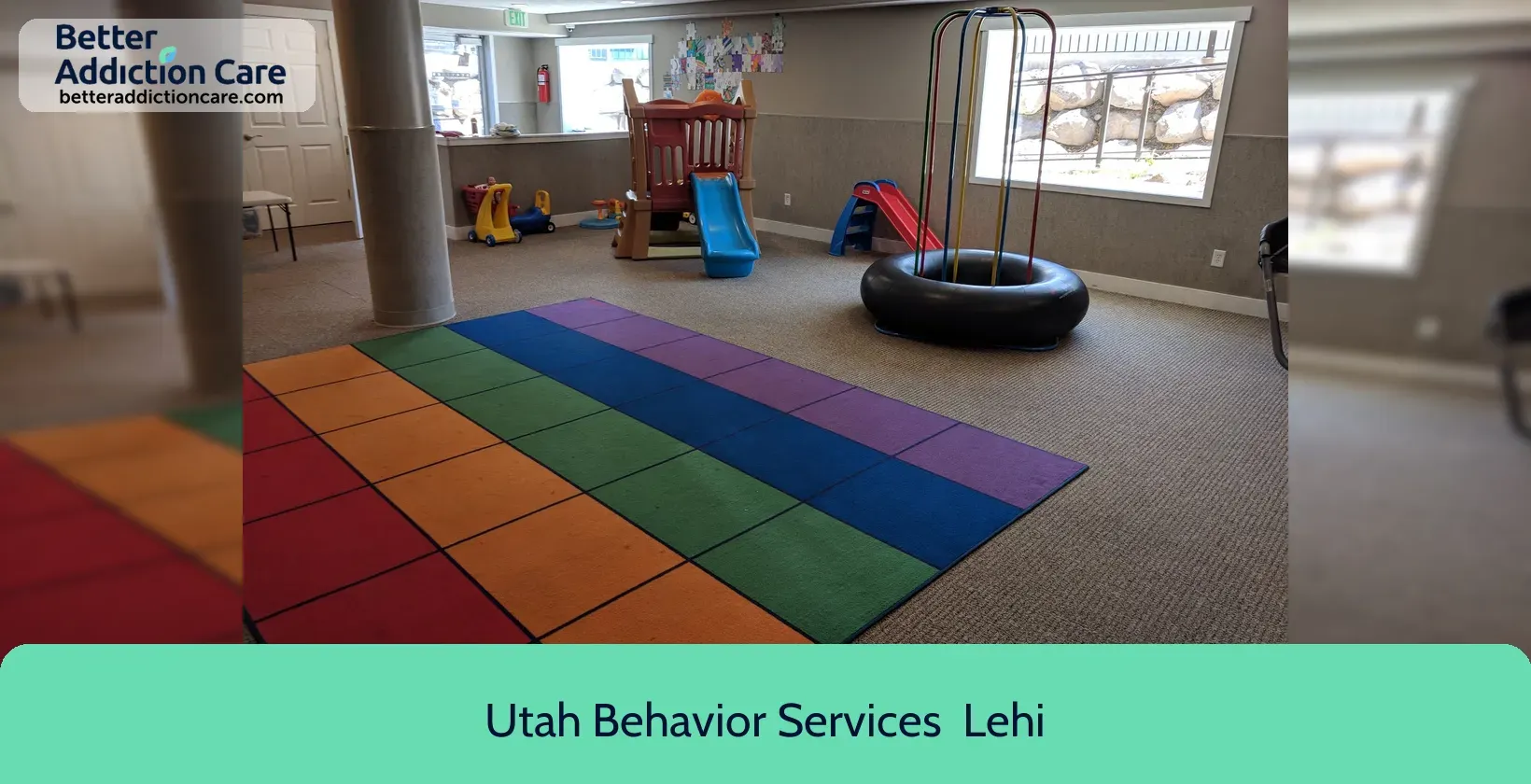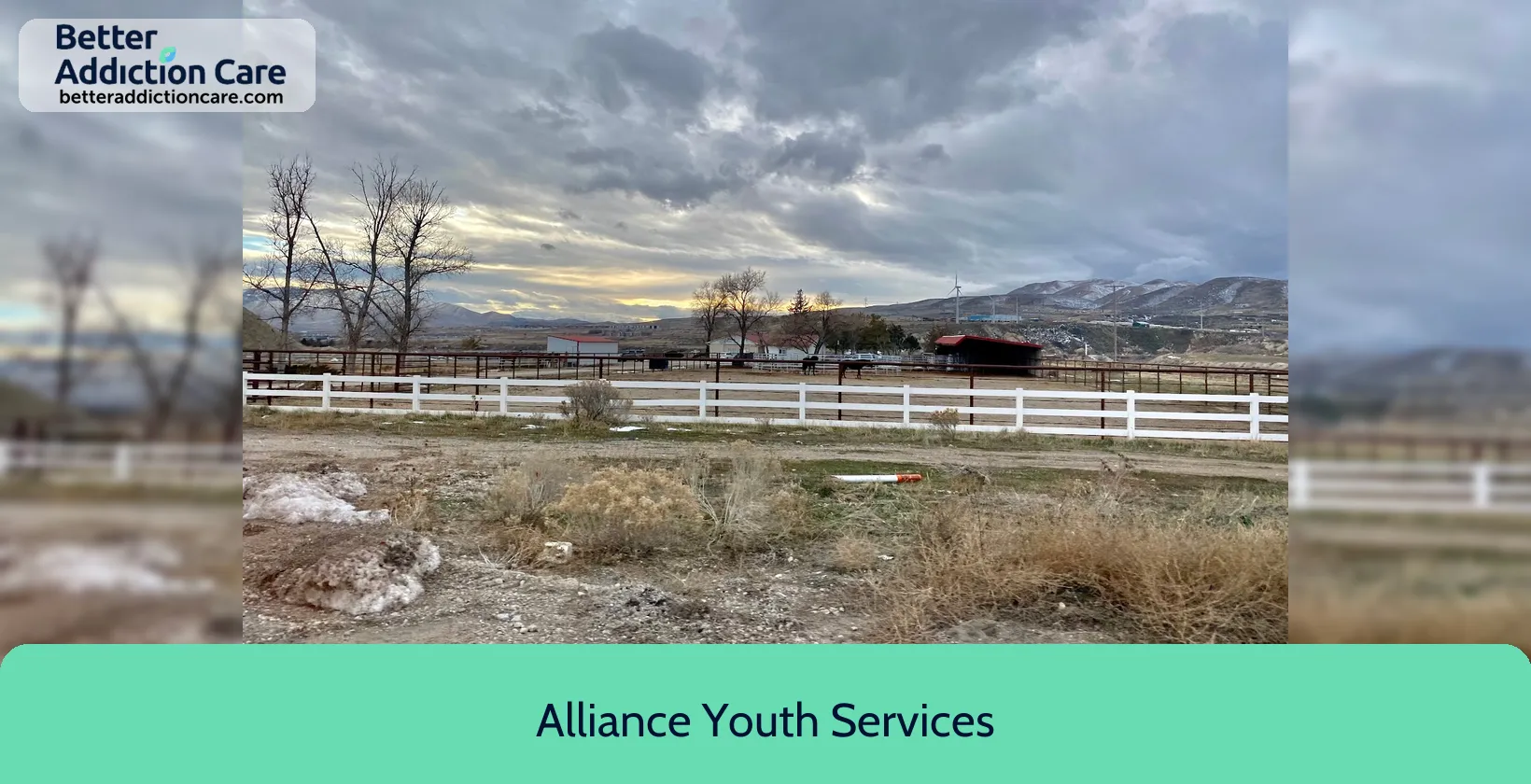Overview
Alliance Youth Services is an mental health treatment center that provides inpatient and outpatient treatment for men from 16 and 65+ years of age. As part of their special programs, Alliance Youth Services treats clients with co-occurring mental and substance use disorders, members of military families, and criminal justice (other than dui/dwi)/forensic clients. To help patients achieve sobriety, Alliance Youth Services provides intake assessments. Afterward, patients receive couples/family therapy, group counseling, and cognitive behavioral therapy during treatment. Alliance Youth Services is located in Lehi, Utah, providing treatment for people in Utah County, accepting medicaid, state-financed health insurance plan other than medicaid, and private health insurance.
Alliance Youth Services at a Glance
Payment Options
- Medicaid
- State-financed health insurance plan other than Medicaid
- Private health insurance
- State mental health agency (or equivalent) funds
- State welfare or child and family services funds
Assessments
- Screening for tobacco use
- Comprehensive mental health assessment
- Comprehensive substance use assessment
Age Groups
- Children/adolescents
- Seniors
Ancillary Services
- Assertive community treatment
- Case management service
- Court-ordered outpatient treatment
- Diet and exercise counseling
- Education services
Highlights About Alliance Youth Services
6.68/10
With an overall rating of 6.68/10, this facility has following balanced range of services. Alcohol Rehabilitation: 8.00/10, Drug Rehab and Detox: 6.00/10, Insurance and Payments: 6.00/10, Treatment Options: 6.73/10.-
Alcohol Rehabilitation 8.00
-
Treatment Options 6.73
-
Drug Rehab and Detox 6.00
-
Insurance and Payments 6.00
Treatment At Alliance Youth Services
Treatment Conditions
- Mental health treatment
- Alcoholism
- Substance use treatment
- Co-occurring Disorders
Care Levels
- Hospital inpatient treatment
- Outpatient
Treatment Modalities
- Couples/family therapy
- Group counseling
- Cognitive behavioral therapy
- Dialectical behavior therapy
- Integrated Mental and Substance Use Disorder treatment
Ancillary Services
Languages
- Spanish
Special Programs
- Clients with co-occurring mental and substance use disorders
- Members of military families
- Criminal justice (other than DUI/DWI)/Forensic clients
- Clients who have experienced trauma
- Children/adolescents with serious emotional disturbance (SED)
Get Help Now
Common Questions About Alliance Youth Services
Contact Information
Other Facilities in Lehi

6.65

6.65
DISCLAIMER: The facility name, logo and brand are the property and registered trademarks of Utah Behavior Services - Lehi Main Center, and are being used for identification and informational purposes only. Use of these names, logos and brands shall not imply endorsement. BetterAddictionCare.com is not affiliated with or sponsored by Utah Behavior Services - Lehi Main Center.

